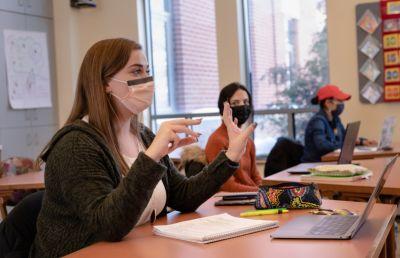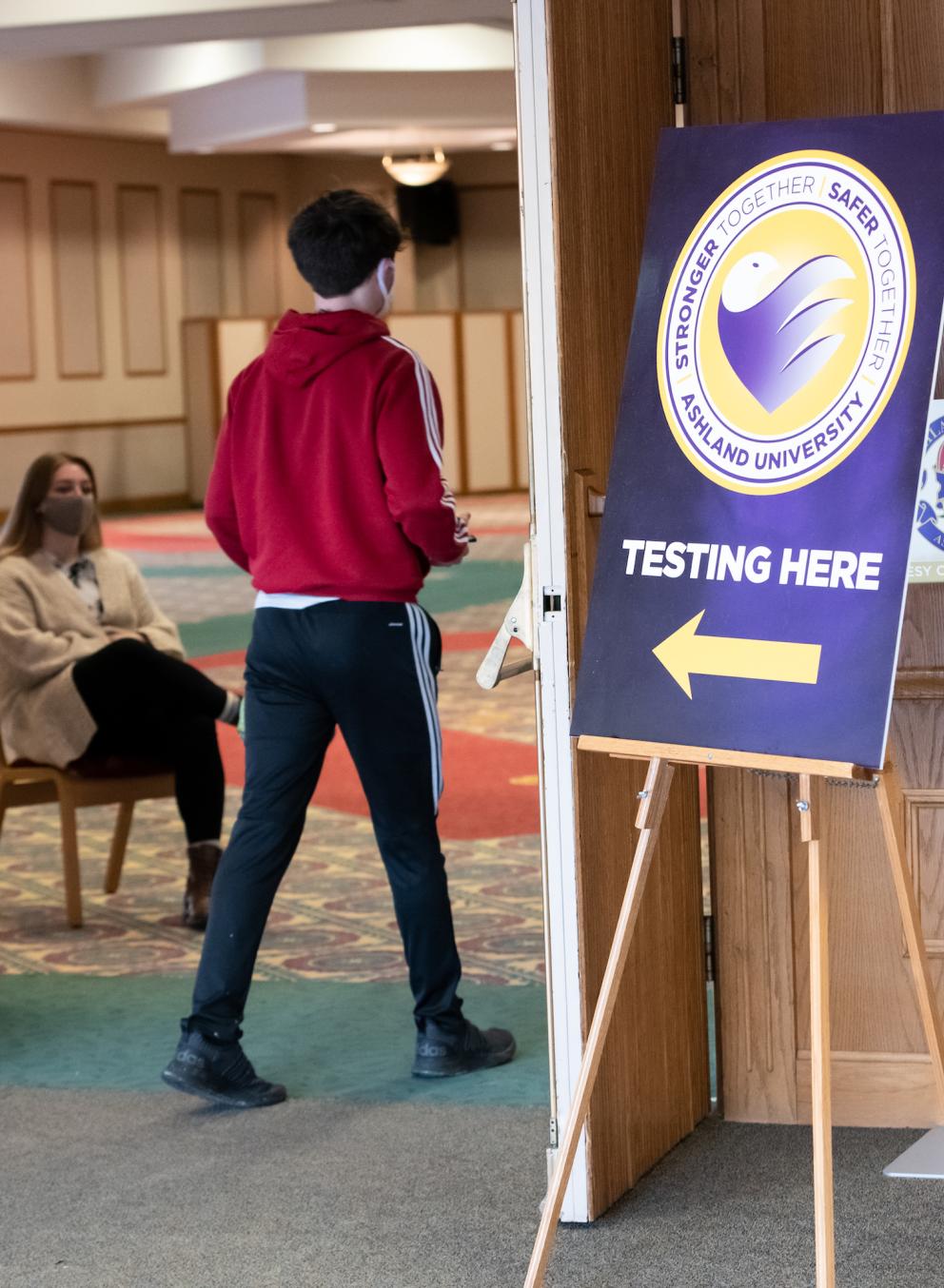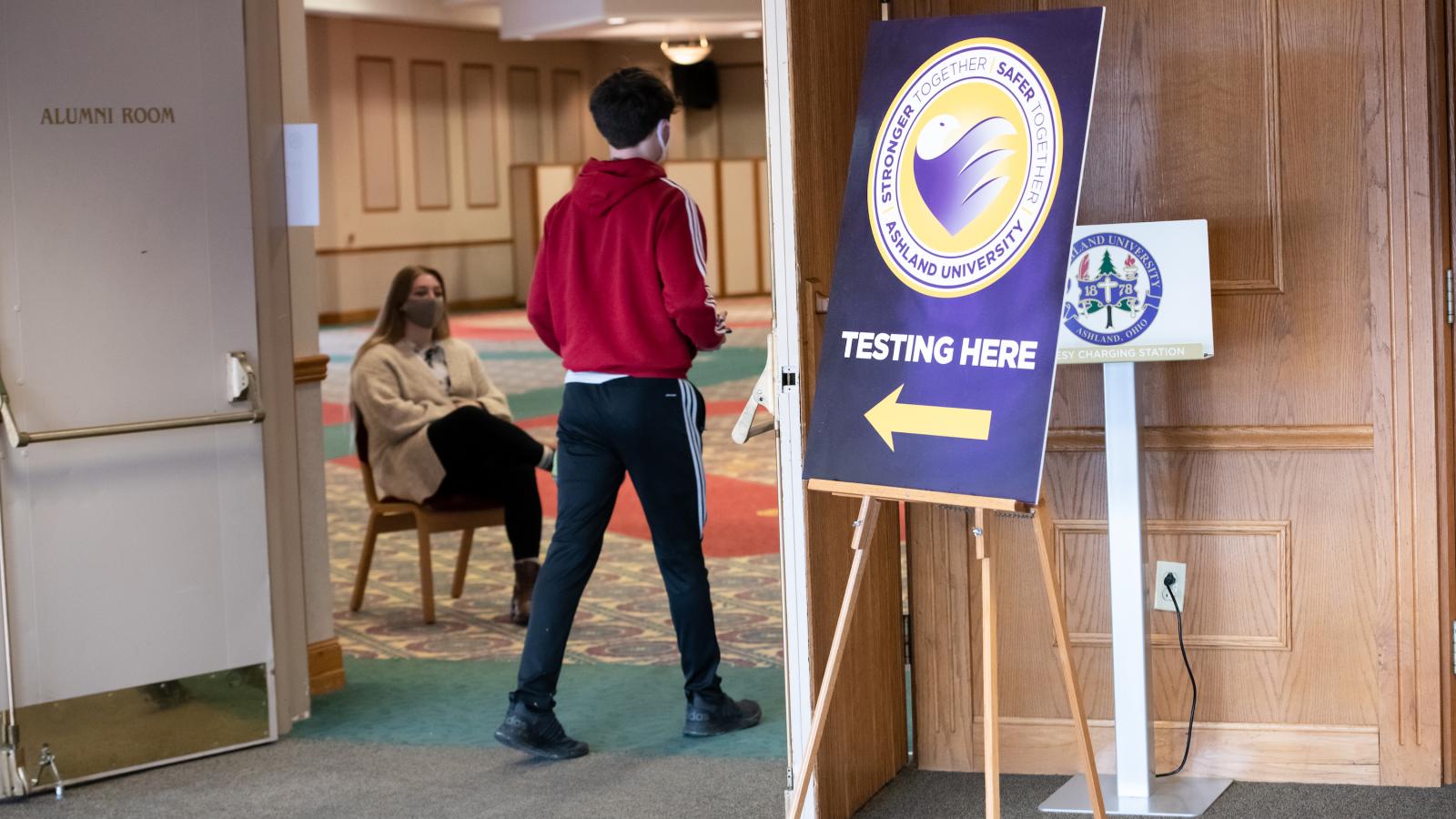Symptoms and Prevention
The Centers for Disease Control (CDC) indicates that symptoms of COVID-19 may appear up to 14 days following exposure and may include the following:
- Fever or chills
- Cough
- Shortness of breath or difficulty breathing
- Fatigue
- Muscle or body aches
- Headache
- New loss of taste or smell
- Sore throat
- Congestion or runny nose
- Nausea or vomiting
- Diarrhea
To prevent exposure to COVID-19, the CDC recommends the following:

Resources for Coping
The COVID-19 pandemic has hit everyone hard. Ashland University cares for its students, faculty and staff and wants you to feel safe, both on campus and at home. We’ve collected the following resources to help you cope with facts of COVID-19:
- Five Ways to View Coverage of the Coronavirus
This article by the American Psychological Association provides tips for managing anxiety, putting bad news in perspective and maintaining a positive outlook. - Taking Care of Your Mental Health in the Face of Uncertainty
This short piece by the American Foundation for Suicide Prevention reminds us that we are not helpless, even in light of current events. - The Eating Disorder Foundation – Support Groups
The Eating Disorder Foundation offers several free, remote support groups for individuals, groups and families, all with the goal of helping people stay physically healthy and mentally aware. - Mindful.org
Mindful.org exists for the sole purpose of promoting mindfulness and positivity through a variety of content, including articles, training, courses and connections.

Tips and Tricks
Take care of your body.
Even if you’re self-isolating at home, your body still needs attention. Eating healthy meals, exercising regularly, breathing fresh air, getting at least seven hours of sleep at night and limiting your consumption of alcohol all improve your immune system. Not only that, having a healthy body lessens anxiety and contributes to a positive attitude.
Take care of your mind.
Take breaks from social media and news coverage. Constantly searching, scrolling, consuming and updating yourself on COVID-19 and other news can contribute to anxiety, depression and fear in general. Put down the phone, turn off the computer monitor and step outside for a moment. Breathe.
Ask for help and offer help.
Remember, you’re not alone in this. Reach out to friends, family, coworkers and other loved ones. Offer support, empathy, information, positive reinforcement and if possible, tangible help. Stay connected and in touch through video chat, phone calls and text threads. Take care of yourself, but be there for one another in turn—positive, personal relationships are crucial to maintaining perspective and elevating one’s mood.
Do what makes you happy (and do it more).
What makes you happy? Now is the time to do it. Read, write, talk to friends and family, watch movies, go on walks around the neighborhood, pet friendly cats and do whatever else it takes to keep your mood going. At the same time, don’t be afraid to try new things—you might just find something you didn’t know you liked. Most importantly, enjoy the little things. Everything you see and do adds up to experience and your experience should be a positive one.

